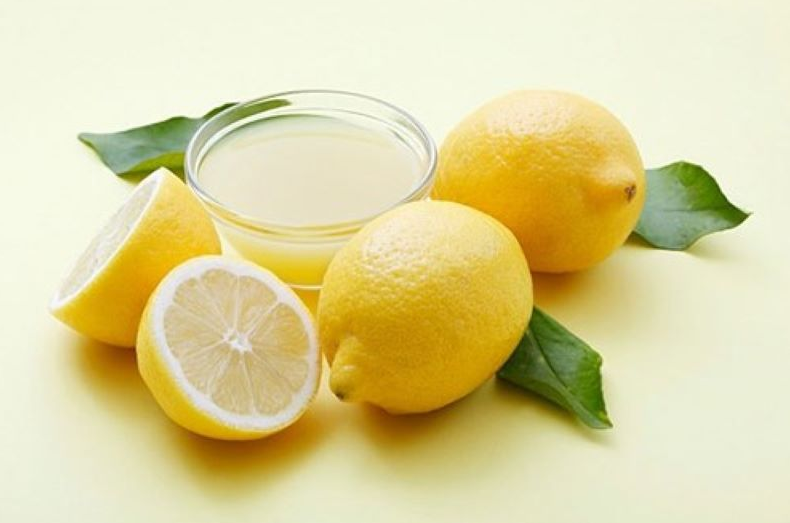Yellow lemons have a very eye-catching and attractive appearance, and also have many nutritional values necessary for the body. This type of lemon is still unfamiliar to users. Many people wonder where yellow lemons come from? What are their nutritional values and health benefits?
Like green lemons, yellow lemons belong to the citrus family, but the appearance and flavor of these two types of lemons are not the same. Yellow lemons are currently popular because they are a great cooling fruit and bring very good benefits to the body.
What is yellow lemon?
Yellow lemon (scientific name is Citrus Limon) is also known as lemon, belonging to the citrus family. Yellow lemon trees first developed in Northeast India and China, then introduced to Europe during the ancient Roman period. Currently, yellow lemons are mainly grown in tropical climates.
Yellow lemons have a very eye-catching appearance, oval shape, bright yellow skin and a very sour taste. The characteristic sour taste of this fruit is due to the citric acid content in lemons, which accounts for about 5 – 6%. The main fiber in lemons is Pectin, which is used to lower blood sugar very effectively.
The main ingredient in yellow lemons is also Vitamin C with a content of up to 53mg/fruit, higher than many other citrus fruits.

The yellow lemon has a very eye-catching appearance, oval shape, bright yellow skin and a very sour taste.
Nutritional value of yellow lemon
Regarding the nutrition of yellow lemon, this type of lemon contains the following essential nutrients:
- Vitamin C: 64% (53mg);
- Calcium: 3% (26mg);
- Iron: 5% (0.60mg);
- Magnesium: 2% (8mg);
- Phosphorus: 2% (16mg);
- Potassium: 3% (138mg);
- Zinc: 1% (0.06mg);
- Vitamins B1 (0.04g), B2 (0.02g), B3 (0.1mg), B5 (0.19g), B6 (0.08mg) and B9 (11ug).
What is the difference between yellow lemon and green lemon?
Yellow lemon and green lemon have many differences in appearance and flavor:
Green lemon
Green lemon, also known as Vietnamese lemon, is round in shape, has a mild sour taste, not too harsh. Green lemon peel is green, bitter, when the lemon is damaged, the peel turns yellow-brown or brown.
A green lemon contains only 35% Vitamin C, which is 29mg, and a very high Potassium content of 490mg/fruit. In addition, green lemons also contain a lot of Vitamin A.
Yellow lemon
Yellow lemons have yellow skin, are oval in shape and have a very sour taste. In yellow lemons, the Potassium content is about 138mg, but the Vitamin C content is up to 64%, along with a large amount of Folate.
Note:
Both yellow lemons and green lemons are alkaline, so they have the effect of increasing resistance and detoxifying the body. These two types of lemons are rich in limonoids, which help eliminate cancer-causing agents.

Lemon has about 138mg of potassium but 64% of vitamin C.
Are yellow lemons better than green lemons?
Yellow lemons and green lemons have different mineral content, but both are alkaline, which helps detoxify the body and increase resistance very well. In addition, both types of lemons have common uses such as supplementing Vitamin C and minerals, beautifying the skin, supporting weight loss, supporting digestion, etc.
As mentioned above, yellow lemons have a Vitamin C content of 64% of the lemon’s composition, while green lemons have a Vitamin C content of only 35%. Although the Potassium content in a yellow lemon is only about 138mg compared to the Potassium content in green lemons up to 490mg, this number is still quite high compared to other fruits.
To achieve the great benefits of yellow lemons, you should use them more often. You can make a refreshing drink or use them to prepare dishes.
Effects of yellow lemons
So what are the health benefits of yellow lemons? Lemons provide the following benefits:
Reduce the risk of stroke
According to the American Heart Association, lemon juice reduces the risk of ischemic stroke in women because lemons contain a large amount of flavonoid compounds that help protect the body from cancer and cardiovascular diseases.
A study of nearly 70,000 women over the age of 14 who regularly drank lemon juice had a 19% lower risk of cardiovascular disease than those who did not drink it.
Improve mood, increase brain health
When you are tired or dehydrated, drinking lemon juice helps replenish energy for the body, helps reduce stress, anxiety and significantly improves health and gives you more energy to work.
Using lemons regularly will supplement the body with abundant Vitamin C and Potassium, helping you concentrate better, enhancing brain activity and the nervous system.
Brighten Skin
The high Vitamin C content in lemons is very effective in brightening the skin, removing toxins from the blood and reducing wrinkles.

The high Vitamin C content in lemons is very good for brightening the skin.
Support respiratory diseases
Lemons help support and limit respiratory diseases such as asthma or infections thanks to their high acid content and antibacterial properties that create an alkalizing reaction.
Balance pH
Lemons help the body balance pH levels, making the mouth fragrant, limiting dry mouth caused by smoking and effectively preventing allergies.
Strengthen the immune system
Lemons contain high levels of Vitamin C and Potassium, which help stimulate the brain and ensure normal nerve function, control blood pressure, and increase the body’s resistance to prevent colds.
Lose weight
Lemons contain high levels of fiber, which helps promote metabolism, reduce cravings and maintain enough water for the body, thereby controlling weight and helping to lose weight.
Reduce nausea
Lemon has antibacterial properties, acts as a disinfectant, when you drink a glass of lemon tea, the irritated stomach will be soothed, especially the feeling of nausea after drinking alcohol.
What should you pay attention to when making lemon juice?
If you use lemon juice in moderation, it will bring many health benefits. Because lemon or other types of lemon contain acid, when drinking lemon juice, you need to note:
- Do not drink lemon juice that is too hot or too cold. If you drink lemon juice that is too cold, it will easily shock the stomach when absorbed, and if you drink it too hot, it will break the specific enzyme bonds, reducing the effectiveness of lemon juice.
- Do not drink concentrated lemon juice directly because it can cause stomach ulcers due to the high content of citric acid in lemon.
- Do not drink too much lemon juice because it can easily cause heartburn and acid reflux.
- You should drink lemon juice with a straw because the acid in lemon juice will erode and adversely affect tooth enamel.
- You should not drink lemon water instead of water every day to lose weight, because lemon water is not like daily drinking water that has all the minerals and electrolytes. Drinking too much lemon will cause electrolyte imbalance.
- Do not drink lemon water on an empty stomach, because it can easily damage the digestive system, causing severe cramps.
- In the early morning, you should drink warm lemon water with honey, which helps to start the digestive system, helping the stomach and intestines work better.

In the early morning, you should drink warm lemon water with honey, which is good for the digestive system.
Lemon is one of the most popular fruits in the world. With its distinctive color, aroma and sour taste, lemon is not only a beautiful fruit but also brings many benefits to human health.





